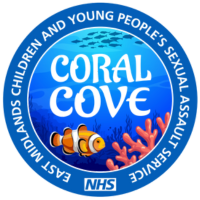What is Sexual Assault?
Sexual assault can take many forms and affect anyone. Knowing the facts and your rights can help you make sense of what happened and seek the support you need.
Types of Sexual Assault
Sexual assault can take many forms, including:
- Rape or attempted rape
- Assault by penetration
- Sexual touching
- Child sexual abuse
- Sexual harassment
- Indecent exposure
- Cyber flashing (sending explicit images without consent)
- Spiking (drugging someone’s drink or food)

Sexual assault can happen to anyone, at any age or gender. It does not always leave visible injuries, and it does not have to involve physical violence. The perpetrator may be a stranger or someone known, such as a friend, partner, ex-partner, family member, teacher, or colleague.
Consent and the Law
Consent means freely agreeing to sexual activity. If someone is pressured, manipulated, scared, asleep, unconscious, or under the influence of alcohol or drugs, they cannot give consent.
For children and young people:
- If you are under 16, it is illegal for anyone over 16 to engage in sexual activity with you.
- If you are under 13, you cannot legally give consent under any circumstances.

Grooming can happen to children and young people online, in person, or both – by a stranger or someone they know. This could be a family member, a friend, or someone who has targeted them – like a teacher, faith group leader, or sports coach.
Challenging Myths and Knowing the Signs
Understanding the truth about sexual assault and recognising signs of abuse can help protect and support children and young people.
Common Myths About Sexual Assault
Many myths about sexual assault can make survivors feel like they are to blame. The truth is:
- It is never the victim’s fault.
- Most sexual assaults are committed by someone the person knows.
- Sexual assault can happen regardless of what someone is wearing or doing.
If You are Worried About a Child or Young Person
Signs of sexual abuse are not always obvious. If you are concerned, you can:
- Read guidance from the NSPCC on recognising the signs of abuse.
- Call us for advice.
- If the child is in immediate danger, call 999.
Getting Support
If you or someone you know has been sexually assaulted, support is available. Whether it happened recently or in the past, we are here to help.

